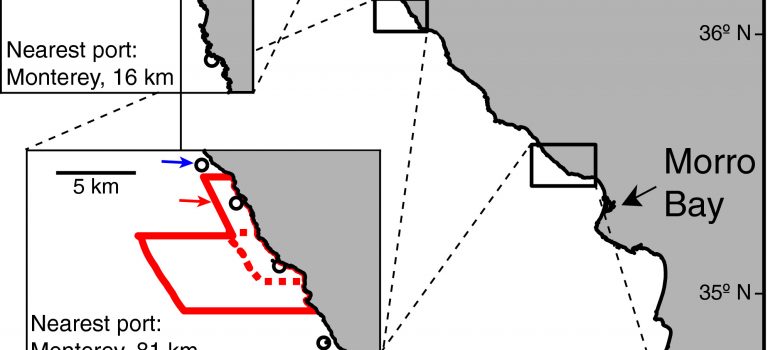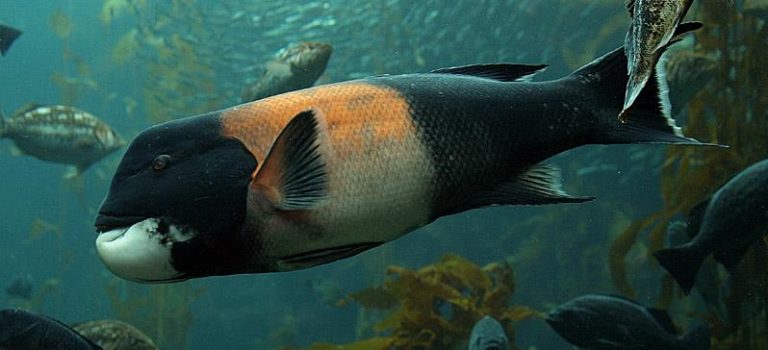In less than a year's time, researchers from our SJSU/MLML campus have collaborated with Cal State Northridge (CSUN) scientists on the publication of two separate marine ecology studies. Both publications consider data collected from California MPA's, some of which have been monitored by research faculty member, Dr. Rick Starr and his Fisheries and Conservation lab. The Starr lab's efforts are part of a larger project through the California Collaborative Fisheries Research Program (CCFRP).
Setting ecological expectations for adaptive management of marine protected areas (Fig. 1, Nickols et al. 2019)
During July of last year, MLML research faculty member, Dr. Rick Starr, and his lab contributed to a new study in the Journal of Applied Ecology in collaborations with 4 other universities (CSUN as well as Oregon State, UC Davis & UC Santa Cruz). This open access paper, examines the efficacy and adaptability of MPA management by evaluating expected responses (estimated using population models) with monitoring data collected by Dr. Starr and his team (via their ongoing project with the California Collaborative Fisheries Program). The paper identified several variables, such as harvest rates prior to MPA implementation, that can determine whether a response to MPA establishment is detectable for a target species. The authors overall approach provides a a critical step of adaptive management by providing a framework for which the implementation of an MPA can be evaluated.
Influence of protogynous sex change on recovery of fish populations within marine protected areas (Easter et al. 2020)
Becoming the first official MLML study of 2020, Dr. Scott Hamilton and former student, Stephen Pang, co-author a paper in the Journal of Ecological Applications with researchers from the University of North Carolina Wilmington. This study takes a novel approach to MPA management for a target species by considering, for the first time, how a population of generic sex-changing fish would respond to the implementation of a protected area. Their findings suggest that protogynous fishes may recover faster than species with fixed sex determination. This study has attracted media attention, including a recent article in Science Daily which interviews Dr. Hamilton about the intriguing results.



